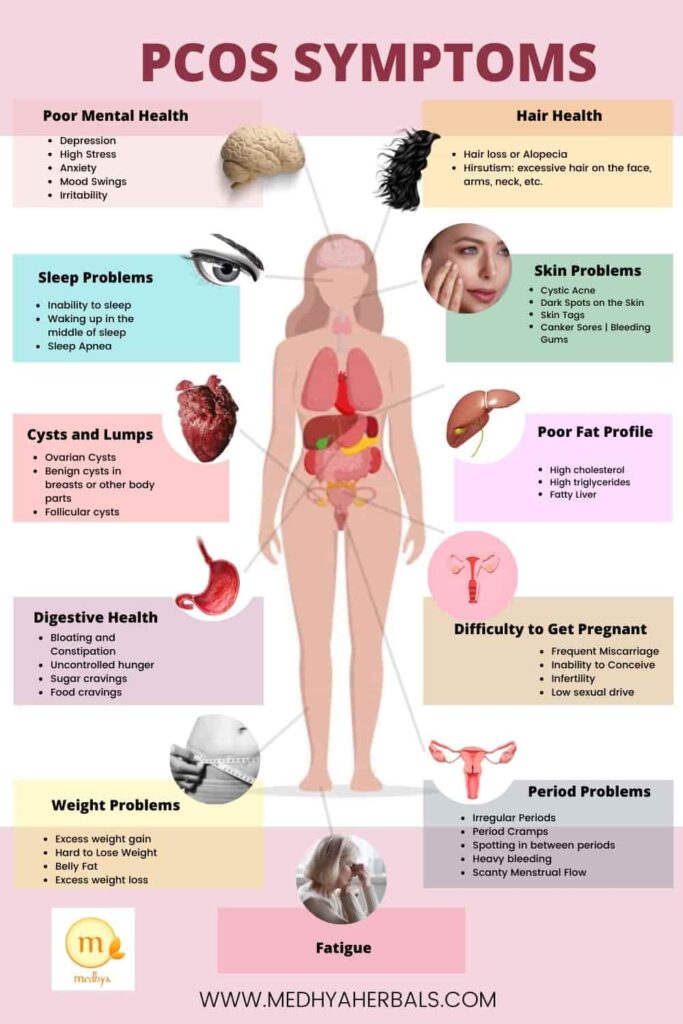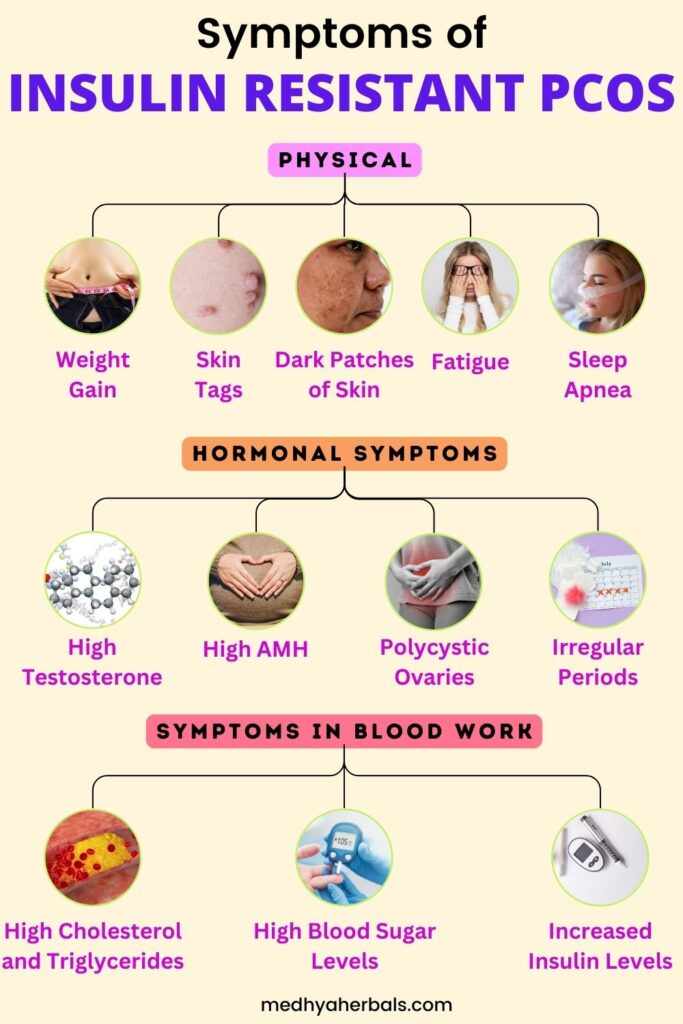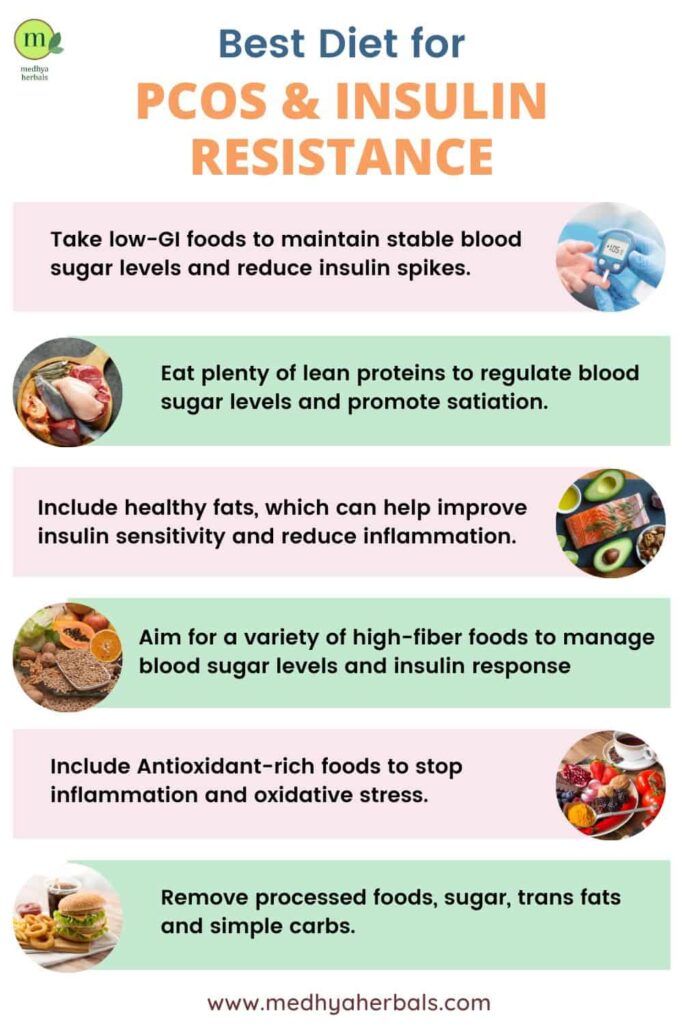Polycystic Ovary Syndrome, commonly known as PCOS, is a complex and prevalent health condition that significantly impacts the lives of countless women worldwide. It’s a condition that extends far beyond its name, touching various aspects of a woman’s health and well-being. In this article, we’ll delve into the world of PCOS, exploring what it is, how it influences the lives of women, and focusing particularly on the struggles and questions related to “PCOS Belly.”
PCOS is a hormonal disorder that affects the reproductive system, but its reach is far more extensive. It brings with it an array of symptoms and concerns that can affect a woman’s self-esteem, physical health, and emotional well-being. One of the key concerns that often troubles those with PCOS is the development of a characteristic symptom – the PCOS belly. It’s not just about appearance; it’s about understanding the causes, finding solutions, and restoring confidence in your own body. In the following sections, we’ll dive into the details of PCOS belly, exploring its appearance, causes, and solutions, all with the goal of providing you with valuable insights and empowering you to manage this aspect of PCOS naturally.
Understanding PCOS Belly
Polycystic Ovary Syndrome (PCOS) is a hormonal disorder that affects women of reproductive age. One of the hallmark features of PCOS is hormonal imbalance, particularly involving insulin and androgens (male hormones). The hormonal imbalance in PCOS can lead to irregular menstrual cycles, cysts on the ovaries, and a range of physical and metabolic changes.
PCOS Belly Symptoms
PCOS can cause excess fat to accumulate in the abdominal area, leading to a more “apple-shaped” body. This type of fat distribution is associated with a higher risk of metabolic complications, including type 2 diabetes. While PCOS presents a diverse array of symptoms, for many women, the appearance and discomfort associated with PCOS belly can be particularly distressing.

- Irregular periods are a common symptom of PCOS due to disrupted ovulation. This menstrual irregularity is often a reflection of hormonal imbalances, including high insulin levels.
- PCOS is associated with weight gain, especially in the abdominal area. This abdominal obesity is closely linked to insulin resistance and androgen excess.
- Bloating is a common and uncomfortable symptom experienced by many women with PCOS, contributing to the notorious PCOS belly.
- While some women with PCOS may be overweight, others may have a normal or even lean body weight (termed as lean pcos type). Despite their lower overall weight, they can still exhibit insulin resistance and abdominal fat deposition, emphasizing the significance of hormonal influences on body composition.
- PCOS belly can create body image issues, making women feel self-conscious and less confident about their appearance.
- The psychological toll of PCOS, including PCOS belly, can result in feelings of frustration, anxiety, and even depression. Understanding and addressing the psychological impact is a crucial aspect of holistic PCOS management.
- Other common symptoms associated with hormonal imbalances in PCOS are excess facial hair (hirsutism), hair loss, balding and pcos acne, which often goes beyond acne on the face.
- PCOS is also linked to gastrointestinal disturbances, including irritable bowel syndrome (IBS). These digestive problems can result in abdominal discomfort and pcos belly bloat.
How PCOS Is Linked to Weight Gain?
PCOS often leads to abdominal obesity, creating an “apple-shaped” body. This is distinct from regular belly fat, which can be more evenly distributed throughout the body. In addition, PCOS belly fat is highly influenced by hormonal causes. Understanding these differences is crucial in addressing PCOS weight gain and in formulating effective weight loss strategies.
Insulin Resistance

One of the types of PCOS is insulin resistant PCOS, where the body’s cells don’t respond effectively to insulin, a hormone that regulates blood sugar. This leads to increased insulin levels in the bloodstream, which can contribute to weight gain, especially in the abdominal area. Elevated insulin can promote fat storage, especially in the abdominal area.
Androgen Excess
Androgens, particularly testosterone, are often elevated in women with PCOS. Elevated levels of androgens, such as testosterone, are common in PCOS. Androgens can promote the accumulation of abdominal fat, resulting in a characteristic “PCOS belly.”
How to Identify If Your Belly Fat Is Hormonal
Determining whether your belly fat is hormonal or not can help in tailoring your approach to address it effectively.
- If you exhibit other PCOS symptoms, such as irregular periods, excess hair growth, or acne, there’s a higher likelihood that your belly fat is hormonal in nature.
- Consult a healthcare professional to assess your hormone levels through blood tests. Elevated levels of androgens and insulin may indicate hormonal belly fat associated with PCOS.
How to Reduce PCOS Belly Naturally?
Women dealing with PCOS belly often wonder whether it’s possible to flatten their abdomen without resorting to extreme or invasive measures. The good news is that there are effective and natural strategies that can help in managing PCOS belly and promoting a healthier, more confident you.
The goal is not just to lose weight but to do so in a healthy and sustainable way. Crash diets or extreme exercise routines can be counterproductive, especially for those with PCOS. A balanced approach that includes a healthy diet and regular physical activity can lead to gradual, sustainable weight loss.
Natural Solutions for PCOS Belly
Achieving PCOS weight loss naturally is not only beneficial for overall health but can also alleviate PCOS symptoms.
Adopt a Healthy Diet
Adopt a balanced, whole-foods-based diet that focuses on complex carbohydrates, lean proteins, and healthy fats. This can help regulate insulin levels and support weight loss. In addition, managing portion sizes can be particularly useful in PCOS weight loss. Smaller, more frequent meals can help stabilize blood sugar levels and reduce overeating. Staying well-hydrated is equally essential. Water can support metabolism and reduce fluid retention.

Add Strength Training
Exercise plays a vital role in PCOS weight loss. However, not all exercises are equally effective for those with PCOS. Cardio workouts, such as brisk walking, swimming, or cycling, can help burn calories and improve insulin sensitivity. Aim for at least 150 minutes of moderate-intensity cardio per week. In addition, incorporating strength training exercises can increase muscle mass, which in turn boosts metabolism and supports weight loss. Work with resistance bands or free weights.
Stress Reduction
Chronic stress can exacerbate PCOS symptoms, including the accumulation of abdominal fat. Reducing stress is crucial for PCOS weight loss and reverse insulin resistance. Practices like yoga, meditation, and deep breathing exercises can help manage stress levels.
Nutrition and Supplements
Dietary choices are a cornerstone of PCOS weight loss. Here are some nutritional guidelines to consider.
- Include plenty of fiber in your diet from sources like fruits, vegetables, and whole grains. Fiber helps control blood sugar and reduce hunger.
- Be mindful of carbohydrate choices. Opt for complex carbohydrates over simple sugars and limit refined carbohydrates.
- A large number of women with PCOS have Vitamin D deficiency. Vitamin D is important to maintain good liver function and fight insulin resistance. Make sure to take good quality vitamin D supplement to support your hormone balance and weight loss.
- Similarly Zinc, Selenium, Magnesium and Iron are other essential nutrients that need to be taken in sufficient quantity for proper metabolism and hormone balance.
Ayurvedic Treatments for PCOS
Ayurveda, an ancient holistic healing system, offers valuable insights into managing PCOS naturally.
- Ayurvedic treatments often target the endocrine system, helping to restore hormonal balance. This can lead to reduced androgen levels, improved insulin sensitivity, and a reduction in abdominal fat, all of which contribute to PCOS belly.
- Medhya Herbals’ Ayurvedic solutions include herbal remedies known for their effectiveness in managing PCOS. These remedies can help in regulating menstrual cycles, reducing bloating, and supporting weight management.
Natural Remedies to Prevent PCOS Belly Bloat
- Herbal teas like peppermint and ginger can help soothe the digestive system and reduce bloating. They have natural anti-inflammatory properties.
- Probiotic supplements or fermented foods, such as yogurt and kefir, can restore the balance of gut bacteria, reducing gastrointestinal symptoms and bloating.
- Proper hydration is essential for preventing water retention. Drinking enough water can help flush excess sodium from your body and reduce bloating.
- Eating regular, balanced meals can stabilize blood sugar levels and reduce the likelihood of overeating or snacking on processed, high-sodium foods that can contribute to bloating.
- Reducing salt intake, especially in the form of processed and fast foods, can help mitigate water retention and bloating.
- High-stress levels can exacerbate PCOS symptoms, including bloating. Engage in stress-reduction techniques, such as yoga, meditation, or deep breathing exercises.
Conclusion
Dealing with PCOS and its associated challenges, including the notorious PCOS belly, can be an arduous journey. We understand the frustration, discomfort, and sometimes, the emotional toll it can take on your life. But there is hope. At Medhya Herbals, we offer you more than just relief; we provide a holistic approach that targets the root causes of your PCOS symptoms.
Ayurvedic treatments, with their time-tested wisdom, focus on restoring your body’s natural balance. They offer a path to long-lasting relief and better well-being, empowering you to regain control of your health and confidence. We believe that everyone deserves a life free from the discomfort of PCOS belly and its accompanying symptoms.
So, don’t hesitate to take the next step towards a healthier and happier you. Schedule a consultation with our Ayurvedic doctors at Medhya Herbals, and let us tailor a personalized treatment plan that addresses your unique needs and concerns. Together, we can work towards a future where you’re not just managing your PCOS; you’re thriving with it.
FAQ
How do I know if my belly fat is hormonal?
Identifying whether you have a hormonal belly can be determined by assessing accompanying symptoms such as irregular menstrual cycles, excessive hair growth, or acne. Moreover, consulting a healthcare professional for hormone level evaluations through blood tests can provide valuable insights into the hormonal nature of your belly fat.
Does PCOS cause lower belly pooch?
Yes, PCOS can cause a lower belly pooch. The hormonal imbalances and insulin resistance associated with PCOS can lead to fat accumulation in the abdominal area, often resulting in a distinct lower belly pooch. This unique feature of PCOS belly is a common concern for many women with the condition.
Does a woman who has a PCOS has a big or bloated stomach?
Not every woman with PCOS will have a big or bloated stomach, as the condition affects individuals differently. However, PCOS can indeed lead to abdominal bloating and, in some cases, abdominal weight gain due to hormonal imbalances and insulin resistance. The extent of bloating or the size of the stomach can vary from person to person, making it a common but variable symptom of PCOS.
What is the body shape of someone with PCOS?
The body shape of someone with PCOS can vary widely and is not uniform among individuals. PCOS affects women differently, and the body shape may range from lean to overweight. However, a typical characteristic is the tendency to accumulate weight, particularly in the abdominal area, creating an “apple-shaped” figure. This abdominal weight distribution is often a result of hormonal imbalances, specifically elevated insulin and androgen levels, which can lead to a more centralized fat distribution. It’s important to remember that PCOS affects each person uniquely, and body shape is just one aspect of the condition.
Can PCOS cause big tummy?
Yes, PCOS can cause a big tummy. Many women with PCOS experience abdominal weight gain, which can lead to the appearance of a bigger or more prominent tummy. This weight gain is often associated with hormonal imbalances, including elevated insulin and androgen levels, which contribute to the accumulation of fat in the abdominal area. The specific degree of tummy size increase can vary among individuals, but it’s a common concern for many women with PCOS.
What does PCOS Belly look like?
PCOS belly can vary in appearance from person to person, but it often manifests as a round and protruding abdomen, sometimes described as an “apple-shaped” figure. It can appear larger and more prominent, with fat accumulating in the abdominal area. The extent and specific look of a PCOS belly depend on factors such as genetics, overall body composition, and the degree of hormonal imbalance.
How am I skinny but have PCOS?
Being skinny while having PCOS is entirely possible. PCOS affects women of various body types and can manifest differently in each individual. While some women with PCOS may experience weight gain, others may have a normal or even lower body weight. However, even if you have a slender frame, you can still have PCOS with symptoms like irregular periods, hormonal imbalances, and PCOS-related concerns like abdominal weight gain or bloating. The relationship between body weight and PCOS is complex, and the condition’s impact goes beyond physical appearance.

